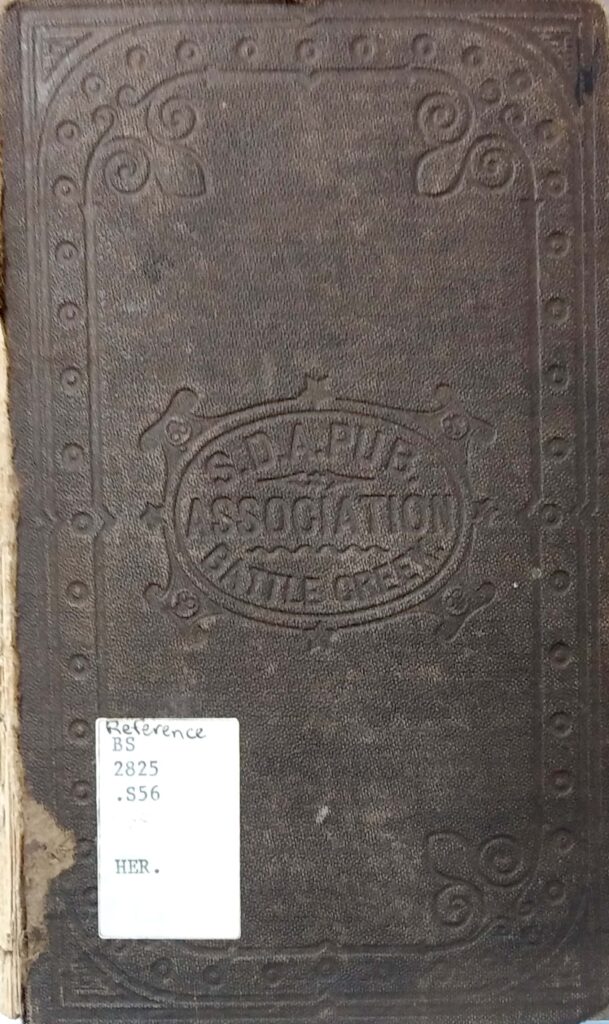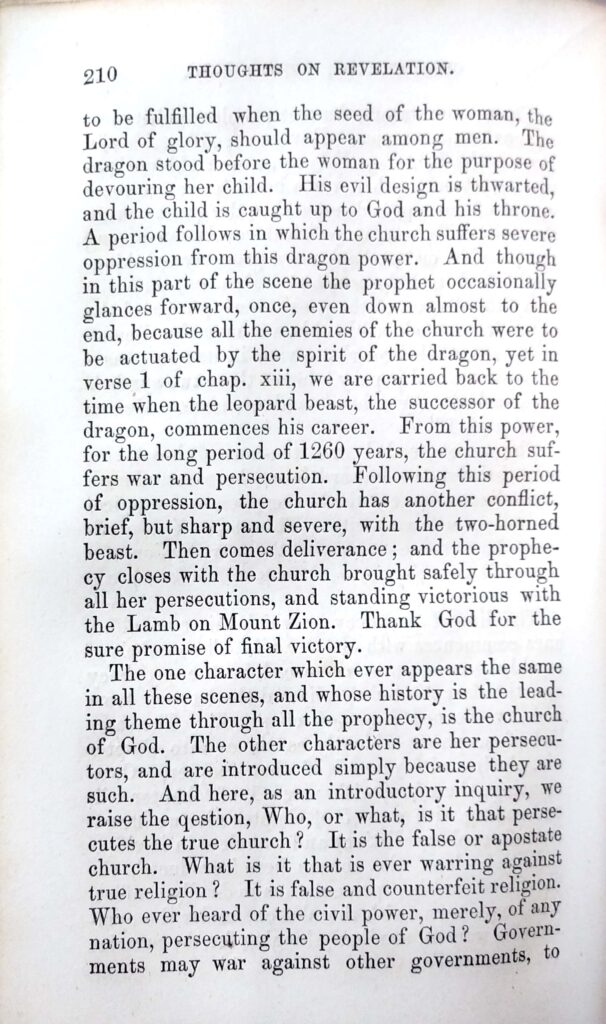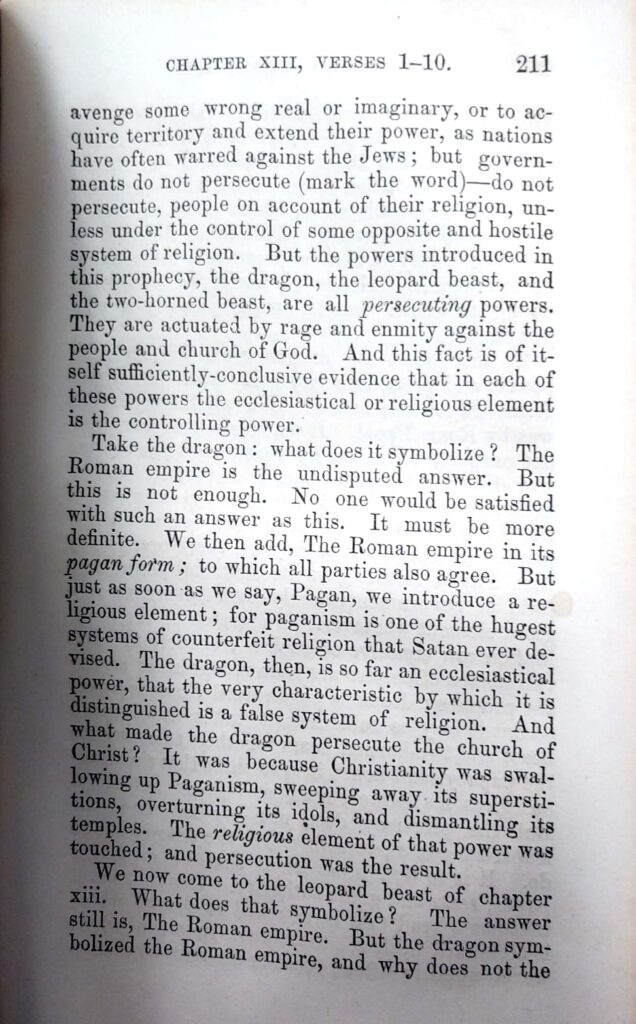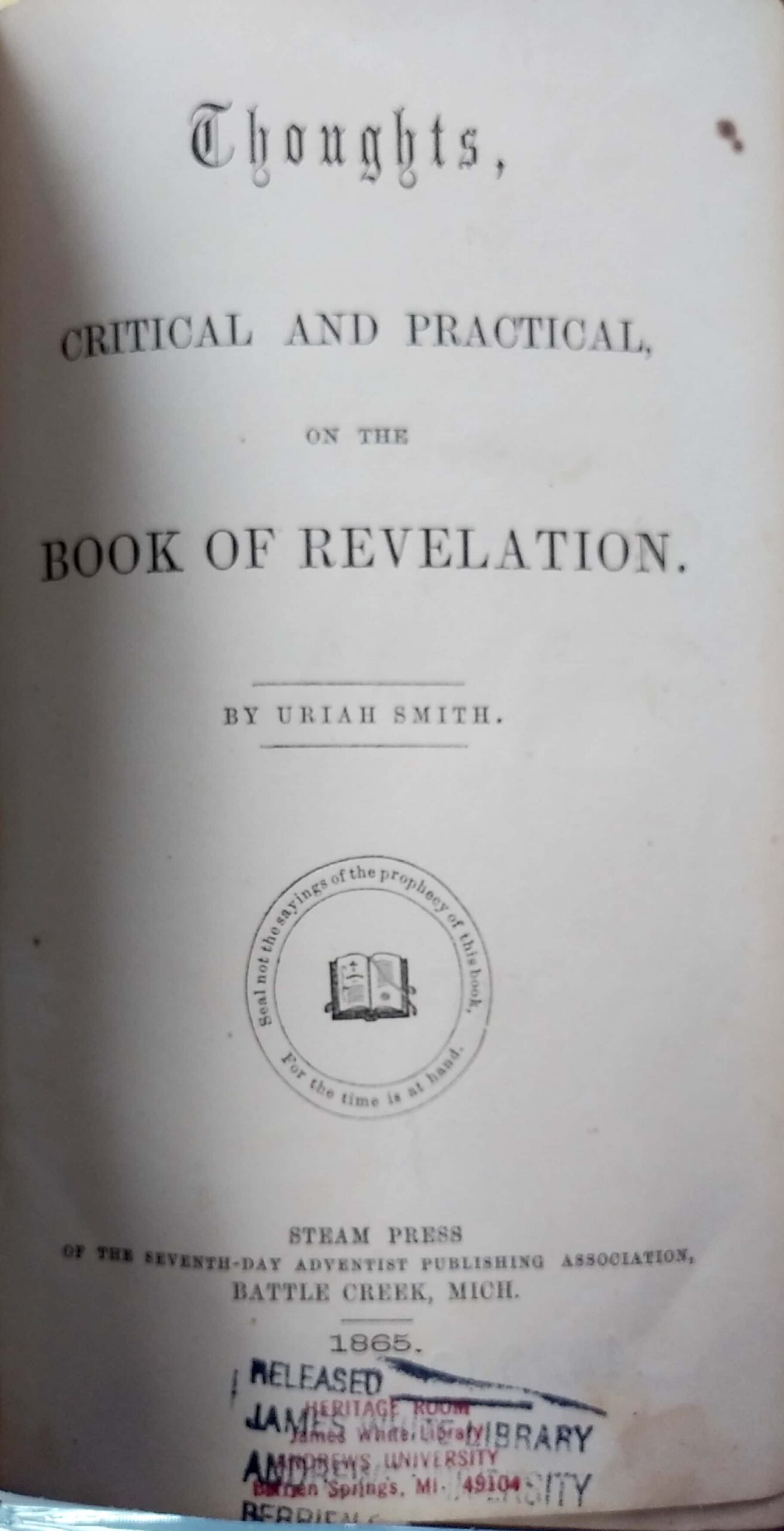“The one character which ever appears the same in all these scenes, and whose history is the leading theme through all the prophecy, is the church of God. The other characters are her persecutors, and are introduced simply because they are such. And here, as an introductory inquiry, we raise the question, Who, or what, is it that persecutes the true church? It is the false or apostate church. What is it that is ever warring against true religion? It is false and counterfeit religion. Who ever heard of the civil power, merely, of any nation, persecuting the people of God? Governments may war against other governments, to avenge some wrong real or imaginary, or to acquire territory and extend their power; but governments do not persecute (mark the word)–do not persecute, people on account of their religion, unless under the control of some opposite and hostile system of religion. But the powers introduced in the prophecy, the dragon, the leopard beast, and the two-horned beast, are all persecuting powers. They are actuated by rage and enmity against the people and church of God. And this fact is of itself sufficiently conclusive evidence that in each of these powers the ecclesiastical or religious element is the controlling power.
Take the dragon: what does it symbolize? The Romain empire is the undisputed answer. But this is not enough. No one would be satisfied with such an answer as this. It must be more definite. We then add, The Roman empire in its pagan form; to which all parties also agree. But just as soon as we say, Pagan, we introduce a religious element; for paganism is one of the hugest systems of counterfeit religion that Satan ever devised. The dragon, then, is so far an ecclesiastical power, that the very characteristic by which it is distinguished is a false system of religion. And what made the dragon persecute the church of Christ? It was because Christianity was swallowing up Paganism, sweeping away its superstitions, overturning its idols, and dismantling its temples. The religious element of that power was touched; and persecution was the result.”
Uriah Smith, Thoughts, Critical and Practical on the Book of Revelation, 1865, pp. 210,211
 |  |
 |  |
